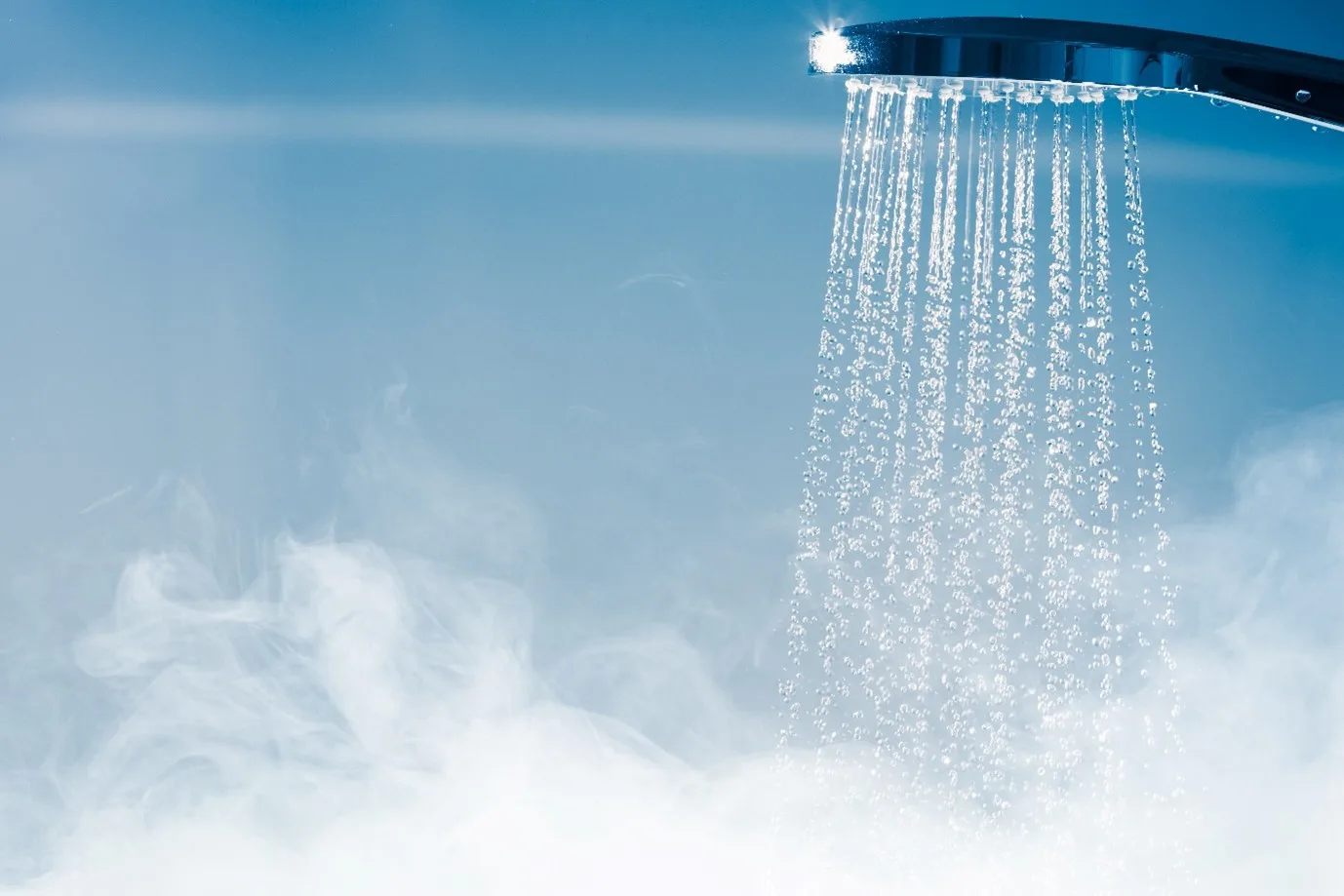DOES HOT WATER WASH CAUSE DANDRUFF?
You might be used to washing hair with hot water, but can it be the reason behind your dandruff?

Nothing feels better in the cold weather, than to jump into a hot shower to warm your bones. It can instantly reset your stress levels and relax any tired muscles. Heat-based therapy is even used across the world to tackle different forms of ailments. But when it comes to your scalp and hair, hot water might be more troublesome than helpful.
But does hot water cause dandruff?
Washing hair with hot water
Hot water can cause severe stress to your hair. It increases the porosity of your hair, leaving it frizzy, dry and brittle. When you shower with hot water it breaks the keratin and opens up the cuticle layer of your hair strand. This is the outermost layer and protects the core of your hair from damage. Once this is open, it is unable to prevent moisture from escaping and instantly changes the texture. This weakens the hair structure and increases hair breakage.
Direct use of hot water can also lead to inflammation and redness on your scalp, while opening up the pores. This affects your hair roots and can damage skin tissue, making it easier for your hair to fall out. This is why people tend to see excessive shedding with frequent hot showers in cold weather.
But does hot water cause dandruff?
Dandruff is a scalp condition that is easily identified and easily mixed up. The symptoms of dandruff are itchy scalp, redness, and flaking of dead skin cells. But to understand if hot water is the cause of dandruff, we need to first understand what leads to this condition.
Your scalp is covered in numerous sebaceous glands that secrete a waxy oil like substance known as sebum. These glands are found all over the body, but in highest density on your face and scalp. Sebum is vital in protecting your scalp from pollutants and germs, while trapping the moisture on your skin. It flows down to the tips of your hair and covers them in a protective layer as well.
If due to some reason your oil glands are hyperactive and there is excess oil on your scalp, a fungus known as Malassezia Globosa becomes functional. It feeds on the oil and breaks it down into oleic acid, which half of the world is sensitive towards. If your body reacts to this by-product, it can break out into dandruff.
When you’re washing hair with hot water, it strips away this natural oil from your hair and scalp, leaving it completely dry. You might think that this is an ideal scenario to prevent dandruff, but your scalp needs those natural oils to protect you. Excessive drying can trigger your body into producing even more oil to make up the difference. This can have the unintended consequence of increasing your dandruff.
Additionally, when you have a hot shower in the cold weather, it can cause an instant change in the temperature of your scalp. This can severely disrupt your oil production and inevitably affect your dandruff. If you’re washing hair with hot water and a shampoo every day, this can dry up your scalp even faster and make it vulnerable to infections.
So, should we wash our hair with hot water or cold water?
Using hot water in your showers does have some benefits, as it can break down the oil build-up on your scalp and even get rid of grime and dirt. It can unclog your pores and allow cleansers to do their job. The problems only start when we make each shower a hot one.
On the other hand, washing hair with cold water might be able to overcome the challenges of hot water. It can preserve the natural oils on your scalp, while allowing conditioners to lock in moisture within the hair strands. Cold water can seal back the cuticle layer and prevent any excessive moisture loss. It can also tighten pores and hair roots, thereby reducing hair fall.
Cold water has a tendency of calming down an irritated skin, although it depends on how your body reacts. It can also help increase blood circulation, which brings nutrients to your scalp. But cold water can reduce the volume of your hair and make it look flat.
It is important to select the temperature based on your hair type and how oily your scalp is. If you have extremely fine hair, you should avoid hot water as it can increase the porosity and lead to breakage. If you have an excessively oily scalp, you might want to use hot water once or twice. But if it’s a dry scalp, avoid hot water completely.
Is warm water good for hair and scalp?
To counter the problems of both hot and cold water, it is recommended that you use warm water to shower. This should be slightly above your body temperature and can solve your dilemma.
Warm water can stimulate blood flow to the hair follicles and boost hair growth, answering your question – is warm water good for hair. It is also an effective way to clean the scalp. It should be warm enough to clear away the grime and build-up, but not be so hot that it strips away the natural oils. This prevents a sudden jump in temperature and maintains the volume of your hair.
You might want to apply moisturisers that act as dandruff remedies, like aloe vera, argan oil, neem oil or tea tree oil. Along with these hair care tips, there are other effective methods on how to remove dandruff as well, like the Head and Shoulders Neem shampoo, which cleanses your scalp and gets rid of the dandruff flakes. If you want something that moisturises your dry hair and prevents dandruff from coming back, you should look at the Head and Shoulders 2in1 Smooth and Silky shampoo and conditioner in one. Always choose the right product and the right temperature of water in your quest for dandruff-free clean hair.



